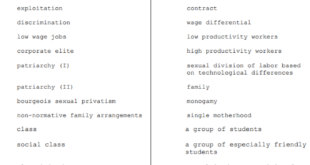from Lars Syll irrelevant model abstractions with no bridges to real-world economies Gödel’s incompleteness theorems raise important questions about the foundations of mathematics. The most important concern is the question of how to select the specific systems of axioms that mathematics is supposed to be founded on. Gödel’s theorems irrevocably show that no matter what system is chosen, there will always have to be other axioms to prove previously unproven truths. This, of course, ought...
Read More »The case for higher wages
We are finally seeing some substantive argument about policy, with Scott Morrison supporting a cut in real wages, and Anthonly Albanese opposing it. I’ve drafted a response (over the fold) Also here on my Blogstack The ‘cost of living’ crisis has been central to the 2022 election campaign. The Consumer Price Index rose by 5.1 per cent over the year to March, and at an annual rate of 8.8 per cent over the last three months. Unsurprisingly, low-paid workers are seeking an...
Read More »Can you think of something snappier than “Understanding the Economy – A Learning System”?
The 1300 words below are extracted from an email that Neva Goodwin wrote and copied me into. It outlines a large new project initiated by the World Economics Association, but which will include numerous other organizations opposed to the dominance of traditional economic thinking. However, the extract’s first sentence is misleading because it is Neva’s and Pratisha’s names that should be mentioned first since they are the project’s primary sources of creative energy. And then there is...
Read More »Open thread May 10, 2022
The magnitude of the required reductions
from Ted Trainer and current issue of RWER It is not commonly understood how large the reductions would have to be to enable a society that is globally sustainable and just. The World Wildlife Foundation’s Footprint measure (2018) estimates the average Australian per capita use of productive land at 6–8 ha. Thus, if the 9–10 billion people expected to be on earth by 2050 were to live as Australians do now, up to 80 billion ha of productive land would be needed. But there are only about 12...
Read More »Economics phrasebook
from Lars Syll In 1990, two economics PhD students at the University of Chicago, Jeffrey Smith and Kermit Daniel … composed “Economics to Sociology Phrase Book” in order, as they put it, “to help economists adjust their way of speaking in a manner that will make it comprehensible to Sociologists” … Concerning economics terminology, by the way, one can see that not much has changed since then. Oleg Komlik
Read More »COVID-19 has shown that capitalism is not enough
from Fernando García-Quero and Fernando López Castellano and current issue of RWER Constructing the capitalist world-economy was only made possible through the use of racism and sexism as tools for the hierarchization and categorization of the population (Mbembe, 2000; Wallerstein, 2000). The history of capitalism is also the history of the open veins of the South and massive exploitation of natural resources (Galeano, 1972; Herrero, 2013). Its logic of accumulation entails irreconcilable...
Read More »Open thread May 6, 2022
Economic modelling
from Lars Syll A couple of years ago, Paul Krugman had a piece up on his blog arguing that the ‘discipline of modeling’ is a sine qua non for tackling politically and emotionally charged economic issues: In my experience, modeling is a helpful tool (among others) in avoiding that trap, in being self-aware when you’re starting to let your desired conclusions dictate your analysis. Why? Because when you try to write down a model, it often seems to lead some place you weren’t expecting or...
Read More »The 4-day week
I just got invited to put a short entry on the 4-day week in the 2nd edition of the Encyclopedia of HRM . It’s over the fold Four Day Week The five-day working week and the two-day weekend, have been standard for so long, it is hard for many to imagine anything different. But, as a normal way of working, it dates back only to the middle of the 20th century. Before that, Saturday was a normal working day in Western countries and only Sunday, the Christian Sabbath, was normally...
Read More » Heterodox
Heterodox


